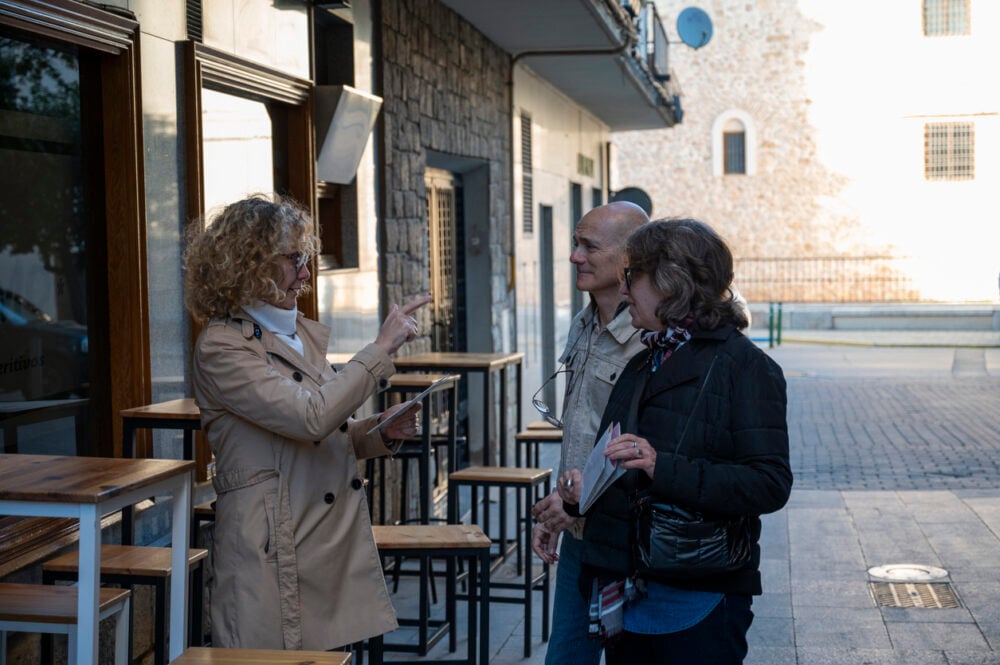That friendly local might not be as helpful as they seem.

There is a world of difference between genuine local hospitality and the predatory charm of a professional scammer. Travel scammers are experts at their craft, using a variety of time-tested psychological tricks to disarm you, gain your trust, and ultimately, take your money. They thrive on the fact that tourists are often in an unfamiliar environment, a little lost, and eager to be friendly.
Learning to recognize the subtle warning signs and the specific scripts they use is the best defense you have. These are the red flags that should immediately put you on high alert.
1. An overly friendly stranger approaches you out of nowhere.

While spontaneous, friendly encounters can happen, you should be immediately cautious of any stranger who is excessively friendly and approaches you unprompted, especially in a major tourist area. Scammers often begin their work by disarming you with a compliment, a friendly question about where you’re from, or an offer of unsolicited help. This is a tactic designed to bypass your natural stranger-danger defenses.
Once they have engaged you in a friendly conversation, they are in a position to lead you into the next phase of the scam. A genuinely helpful local will usually wait for you to ask for help; a scammer will almost always initiate the contact themselves.
2. They try to move you to a second, more private location.

This is one of the biggest and most important red flags. The initial interaction may happen on a busy street, but the scammer’s goal is to get you somewhere more isolated. They will use a friendly excuse, such as, “Let me show you my brother’s amazing carpet shop, no pressure to buy,” or “Come have a cup of tea with my family, it’s just around the corner.”
This is a tactic to get you off the crowded street and into a space where they have more control and can apply high-pressure sales tactics or worse. Never, ever go to a second location with a stranger you have just met, no matter how friendly or trustworthy they seem. Politely but firmly decline and walk away.
3. A sense of extreme urgency is suddenly created.

Scammers know that if you have time to think, you will likely realize that something is wrong. To prevent this, they create a false sense of urgency. They will tell you that a special price on an item is “for today only,” that a “ceremony” is about to start and you have to hurry, or that the police are coming and you need to pay a “fine” immediately.
This manufactured time pressure is designed to make you panic and short-circuit your critical thinking. A legitimate business or situation will almost always allow you time to consider your options. Whenever you feel rushed or pressured into making a quick decision, especially one that involves money, it’s a giant warning sign to stop and walk away.
4. Someone “accidentally” spills something on you.

This is a classic team-based pickpocketing maneuver. One person will “accidentally” spill a drink, drop ice cream, or even squirt mustard on you. They will be incredibly apologetic and will rush over to help you clean up, dabbing at your shirt with a napkin and causing a general fluster. It all feels like a clumsy but innocent mistake.
It is not. While you are distracted by the person “helping” you in front, their accomplice is standing behind you, lifting your wallet from your back pocket or your phone from your purse. Any kind of sudden, messy commotion that focuses your attention should be an immediate signal to secure your belongings.
5. A deal seems far too good to be true.

Whether it’s a taxi driver offering a surprisingly cheap flat rate to a famous landmark, a street vendor selling a designer handbag for a fraction of its price, or someone offering to exchange currency at a rate much better than the bank’s, you should always remember the old adage: if it seems too good to be true, it almost certainly is.
These offers are the bait used to lure you into a scam. The cheap taxi will take you to a commission-based shop you didn’t ask to go to, the handbag is a cheap fake, and the currency exchange will involve a sleight-of-hand trick where you end up with less money than you started with. There are no magical deals in tourist areas.
6. Someone asks to see your passport or wallet for a “spot check”.

In some cities, scammers will dress up as “tourist police” or other officials and will approach visitors, claiming they need to conduct a spot check for counterfeit money or a visa violation. They will ask to see your wallet or passport, and in the process, they will either subtly steal cash from your wallet or tell you that one of your bills is fake and confiscate it.
Real police officers will be in a proper uniform and should be able to produce official identification. They will also rarely, if ever, conduct random money inspections on the street. Never hand your wallet or passport to anyone in plain clothes who claims to be an official. Ask to see their identification and offer to walk to the nearest official police station.
7. The taxi driver says the meter is “broken”.

This is one of the oldest and most common travel scams in the world. You get into a taxi, and as you’re pulling away, the driver will inform you that their meter is broken and that they will give you a “good price” at the end of the trip. This is a universal sign that you are about to be wildly overcharged.
A legitimate taxi driver will always use the meter. If a driver tells you it’s broken, you should politely but firmly ask to be let out of the cab and find another one. Always establish that the meter will be used before you even close the car door to avoid getting into this situation in the first place.
8. A “found” item is used to start a conversation.

The “found gold ring” scam is a classic for a reason. A person will walk ahead of you, pretend to spot something on the ground, and pick up a “gold” ring. They will then turn to you and ask if it’s yours. When you say no, they will look at the ring, point to a fake hallmark, and insist that it’s real gold and very valuable.
They will then offer to sell it to you for a “very cheap price” or will ask for a reward for their “honesty.” The ring is, of course, a worthless piece of brass. The entire theatrical performance is designed to play on your greed and trick you out of your money.
